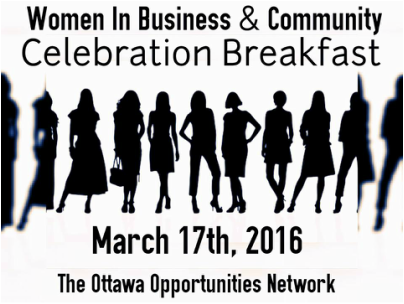For many people, the stereotypical entrepreneur is a casually dressed ‘millennial’ person who was born between 1981 and 1996. The fact is actually quite different. According to data from the 2014 U.S. Census, less than 2 percent of millennials said they were self-employed. That’s less than a third of the rates of entrepreneurship among Generation X (7.6%) who were born in the early 1960s to the early 1980s and Baby Boomers (8.3%, who were born in the mid-1940s to about 1960). As some research points out, older, more established and better-connected individuals are more likely to start their own business than younger ones, with self-employment rates peaking at age 53.
![]() Due to shifts in the economy, a desire for autonomy, and the need for some income in the 50s, 60s, etc. self-employment after age 50 is becoming more common as a second career option. In other words, entrepreneurship as an “encore” to a previous career(s) is becoming more common.
Due to shifts in the economy, a desire for autonomy, and the need for some income in the 50s, 60s, etc. self-employment after age 50 is becoming more common as a second career option. In other words, entrepreneurship as an “encore” to a previous career(s) is becoming more common.
What’s the First Step?
Countless conversations have revolved around the topic of “In ___ years, I’d love to leave this job and start my own business doing __________.” As the barriers to entrepreneurship drop due to technology and shifts in the economy, these conversations are leading to concrete actions. Common questions to answer include: What type of business will you start? Will you provide a service or products? What about your product or service will be unique so that people will buy from you instead of someone else? Will you start it from scratch or will you buy a franchise? Will you pursue this alone or will you have partners? All of these questions, plus some basics about how you’ll finance it, should be answered in a brief business plan. This brief business plan will form the basis of your roadmap.
What’s the Second Step?
Once you’ve considered some of the important preliminaries, it’s important that you take a sober look at your strengths and weaknesses and confirm that you should pursue entrepreneurship. I always say “just because you can do something doesn’t mean that you should do it.” It’s important to work with your strengths while finding ways to compensate for your weaknesses. This is something that I always address when working with career coaching clients who are contemplating a career change. One way to offset personal weaknesses is to find partners, employees, and/or contractors who excel at things that you’re not good at. Another option is to develop systems and/or procedures to offset those weaknesses.
There’s plenty to think about before making the leap from employee to entrepreneur. At the upcoming Second Career / Encore Entrepreneurship breakfast event scheduled for March 17th, I’ll discuss three concepts that will help ensure a smoother start and more successful entrepreneurship. Specifically, we’ll discuss:
- The importance of planning before you launch, preferably while you’re still working elsewhere. A key concept is starting early.
- What’s more important – branding your company or branding yourself? Which one should come first?
- Consolidating your online and offline networks.
Interested in Encore Entrepreneurship as a Second Career? Register for the Second Career Entrepreneurship Breakfast in Ottawa on March 17th. Since this event is close to International Women’s Day, it will also include a short presentation about the Zonta’s presence in Ottawa, which is part of Zonta International. The goals of this series of breakfast events hosted by Ms. Sophia Jacob are to share information and encourage the development of relationships within the business and non-profit sectors.
If you’re interested in next level Career Coaching or HR Services let’s connect by email, phone (free, no obligation 15 to 20-minute initial phone consultations), or via direct message on Twitter, Facebook, or LinkedIn.
Note – Since publishing this article in 2016, another study has come out with a similar conclusion. Specifically, the Kellogg School of Management, at Northwestern University notes that in the tech sector, older founders are more successful. For details, read this article published in May 2018 and another 2018 article called ‘Encore Entrepreneurship – the Grey Edge of the Wedge‘ that I’ve written on this topic.
More than career coaching, it’s career psychology®.
I/O Advisory Services – Building Resilient Careers and Organizations.™
Easily share this article using any of the social media icons below.




